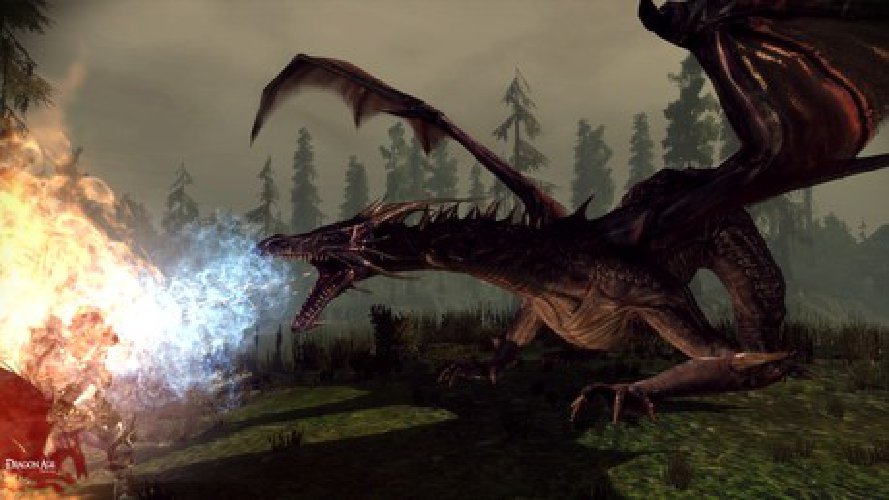Dragon Age: Origins Preview
BioWare's new RPG detailed
It’s E3 and Dan Tudge is presenting a new IP from BioWare and EA. It’s an RPG they’re calling Dragon Age: Origins coming first to PC and later to consoles.
It’s billed as a “spiritual successor” to the rather well-received Baldur’s Gate series, the games that put BioWare on the map back in 1998. The title puts players in a world where, as you might expect, things are a little more mystical than our own (think magic, witches and of course, well, dragons).
BioWare’s new “origin stories” approach to the narrative is intended to “change the way the world perceives you, and how you perceive the world”. The mechanics allow for players to make their character a “hero, martyr, or tyrant” and shape the universe around them through in-game choices.
This being BioWare, there are dialog trees aplenty to shape the relationships with the undoubtedly large selection of characters, your choices in these moments also help alter the game’s events.
We’re told the game differs to Baldur’s Gate in that it’s a much darker, more realistic affair. Darkspawn are the enemy that need to be destroyed here, a rather grumpy looking bunch of orc-like creatures with an often anthropomorphic kind of build. The story is focused mainly on a massive war against said beasts to prevent them from taking over the magical world of Thedas.
We saw a demonstration of a human character playing through the game who’d sided with the Grey Wardens, a counsel it seems are not necessarily loved by all. Whether this leaning is mandatory or not isn’t known, as another a playable character questioning their decisions.

The game features a choice between the wizard, warrior and rogue paths, though beyond this, we don’t really know yet how exactly we’ll be customizing, this being BioWare though, it’s likely there’ll be a lot of stat-related fun to be had.
Teaming up in a group of four seems to be the norm in this title. And where a lot of RPGs would cut to a menu screen where players are able to pick fighters out of thin air, we instead see a somewhat slicker method of changing party members. Certain events in-game in will render the opportunity for a character to join your team, regardless of their importance in the grand scheme of things. This will at times be optional, not necessarily meaning the character will be around indefinitely. We see this in practice during our demonstration as a valiant tower guard opts to leave his post and assist the team in defeating the darkspawn.
Combat is approached in one of two ways; there’s the “pause and play” function, or the “run in and smash, zap or banish everything” technique. The latter will likely be preferred by a large cross section of people who are perhaps less accustomed or keen on the traditional turn-based RPG style.
If players decide to opt for the real-time approach, then the characters in the party they’re not controlling will be handled by AI. If “pause and play” is more your thing then you’re given the option to switch between party members and cue up orders on single or multiple baddies.
A lot of fun can be had with spell combos, many of which being quite the pleasure to execute. These are given specific names like “Grease Fire” or “Entropic Death”, the former combo requires “Grease” to be cast (which will pour oil onto an enemy) before the casting of a fire spell. The latter requires “Death Hex”, a bad luck spell, before “Death Cloud”, an interval-based Spirit damaging attack.
Certain combos cause enemies to become cursed with a reoccurring damage affliction, while others may just result in the combo’s second strike being significantly more powerful than most.
BioWare have made a considerable effort to keep the game’s transitions between conversation, cut-sequence and action smooth, with a bunch of moments where players are thrown quite unexpectedly into battle.
It seems Dragon Age: Origins will bring back fond memories for older players, whilst introducing a few newcomers to the world of single-player RPGs. Watch out for it’s arrival next year on PC.
